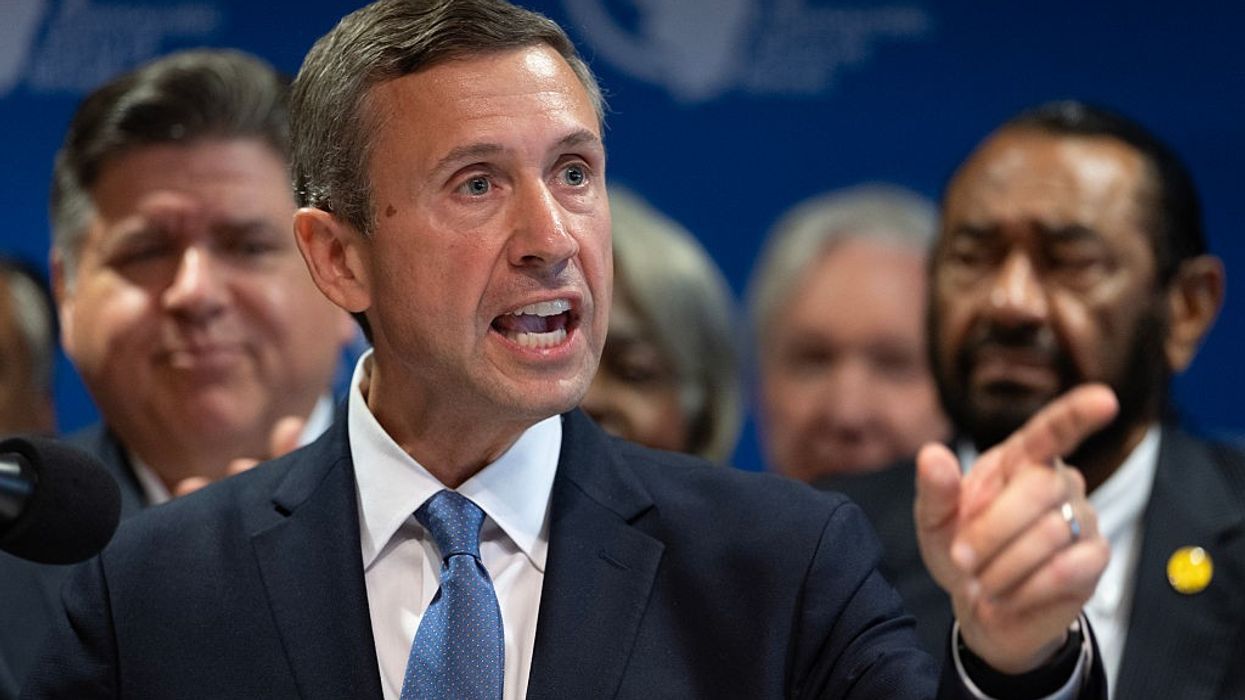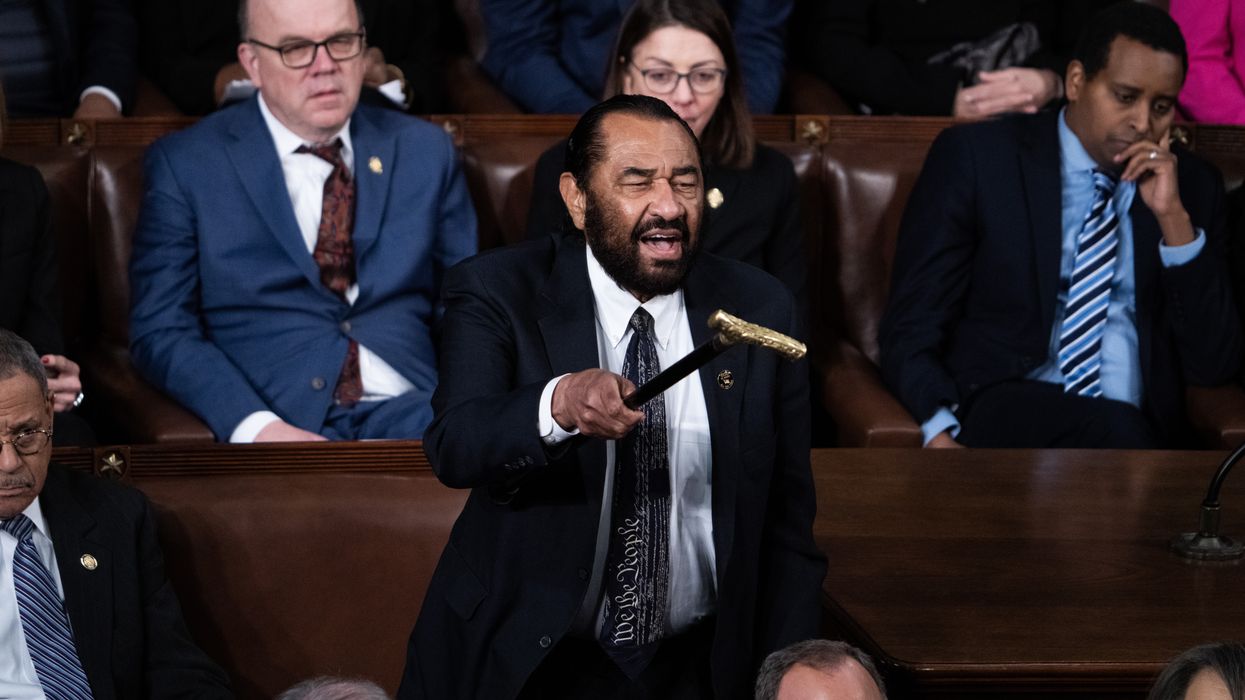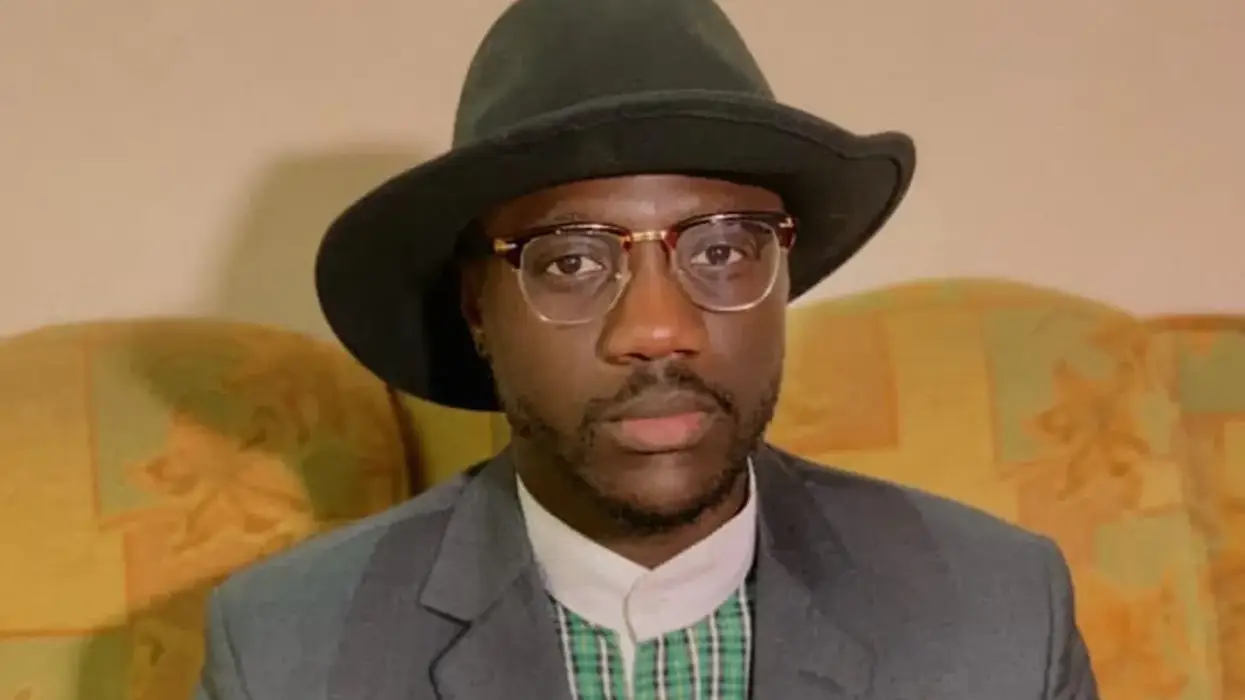Rep. Jamaal Bowman (D-N.Y.)—another opponent of genocide in Gaza who is set to leave the House of Representatives at the end of this term after losing his primary to a pro-Israel candidate—spoke out in support of Taal Friday evening.
"Momodou Taal participated in a peaceful student protest against weapons contractors' presence in a career fair—Cornell set into motion his deportation."
Former President Donald Trump, the Republican nominee for the November election, "showed us how he felt about Black immigrants, and I urge Cornell to refrain from doing the same," Bowman said on social media.
"Momodou Taal participated in a peaceful student protest against weapons contractors' presence in a career fair—Cornell set into motion his deportation," he explained. "Cornell must reverse his suspension. Student protest and free expression are critical rights that universities need to uphold for students and faculty alike."
Joel M. Malina, Cornell's vice president for university relations, has told multiple media outlets this week that "universities can disallow enrollment and bar a student from campus, but do not have deportation powers."
In response, Taal's attorney, Eric Lee, has called that statement "a cynical sleight of hand," given that "the administration has made the decision to persecute Mr. Taal for free speech activity knowing full well that doing so will subject him to serious immigration consequences," which sets "a dangerous national precedent."
Taal, 30-year-old a Ph.D. candidate in Africana studies who was teaching a writing seminar at Cornell, is part of the Coalition for Mutual Liberation. He was among over 100 students who marched into the on-campus career fair last week due to participation from Boeing and L3Harris, defense contractors that students targeted for "supporting the ongoing war in Gaza."
In a video interview with Taal published on Friday, The Cornell Daily Sun's Gabriel Levin noted that the newspaper does not know of any other students suspended because of the career fair protest. Taal suggested that he is being targeted because of his identity as a Black Muslim man and he is seen as a leader of pro-Palestinian campus activism.
Early Monday, Taal received an email about a Cornell police complaint against him related to the career fair protest—which contains allegations that the graduate student denies—and his resulting suspension. He has been barred from campus.
Because Taal has attended the Ivy League school with an F-1 visa, the suspension means he could soon be deported. As The Nation reported on Wednesday:
The F-1 visa program allows foreign nationals to reside in the United States if they are enrolled in an academic educational program, a language-training program, or a vocational program. Those with F-1 visas can also work on campus and in limited off-campus training positions. According to the Department of Homeland Security, suspension from an academic program is a valid reason for the termination of a record, which changes the immigration status of someone holding a F-1 visa.
Cornell University did not respond to questions about its policies and procedures regarding the suspension of a student with an F-1 visa.
As of publication, the university still refers to disciplinary action against Taal as a "temporary suspension." But by suspending Taal, the university set in motion immigration procedures without having to provide the level of evidence that due process would require, if the charges against Taal were criminal, which they are not.
Taal said on social media Thursday that "the VP of student and campus life, Ryan Lombardi, rejected my appeal after one business day. This demonstrates once again that my ability to stay in this country is being hastily handled without due process in a continued attempt to silence me. I have until 5:00 pm tomorrow to appeal to the provost. If the provost rejects this appeal, then I believe my withdrawal will be processed and I will promptly have to leave the country."
"Once again, there has been no investigation, nor have I had a chance to even respond to the allegations against me," he continued. "I maintain that all my actions have been peaceful and in accordance with my First Amendment rights. This is a deliberate targeting of a Black Muslim student at an institution where those two identities are increasingly unwelcome. When it comes to Palestine the university will abandon all commitments to academic freedom and free speech to protect its corporate interests."
Taal's next appeal goes to Cornell's interim provost, John Siciliano—who, in a Monday email to students, "advocated for severe punishments against pro-Palestinian activists, including legal action," as the Sun noted in a Thursday editorial.
Cornell is facing mounting pressure from students, professors, alumni, and campus groups as well as advocates and organizations in Ithaca and across the country to stop "unjustly" punishing Taal—who was also involved in pro-Palestinian advocacy at Cornell during the last academic year, as protests over Israel's assault on Gaza were held on campuses across the United States.
"What should make Taal's suspension troubling to every member of the Cornell community is not at all about whether one agrees with his beliefs—it's that the university hasn't shown Taal the due process that all students deserve," the Sun's editorial states. "Without an independent party weighing the evidence, this can't be called anything other than a kangaroo court in which the provost serves as judge, jury, and executioner."
"To make matters worse, Cornell may have violated labor law, too," the newspaper detailed. "Cornell breached an agreement it had signed just three months ago with Cornell Graduate Students United, which requires the university to bargain with the union when graduate students might be de-enrolled or suspended. Here, no bargaining took place. The university simply chose to impose its will unilaterally."
Although the consequences of Taal's on-campus activism may be severe, he made clear on social media Friday evening that he "will never regret going hard for Palestine."




